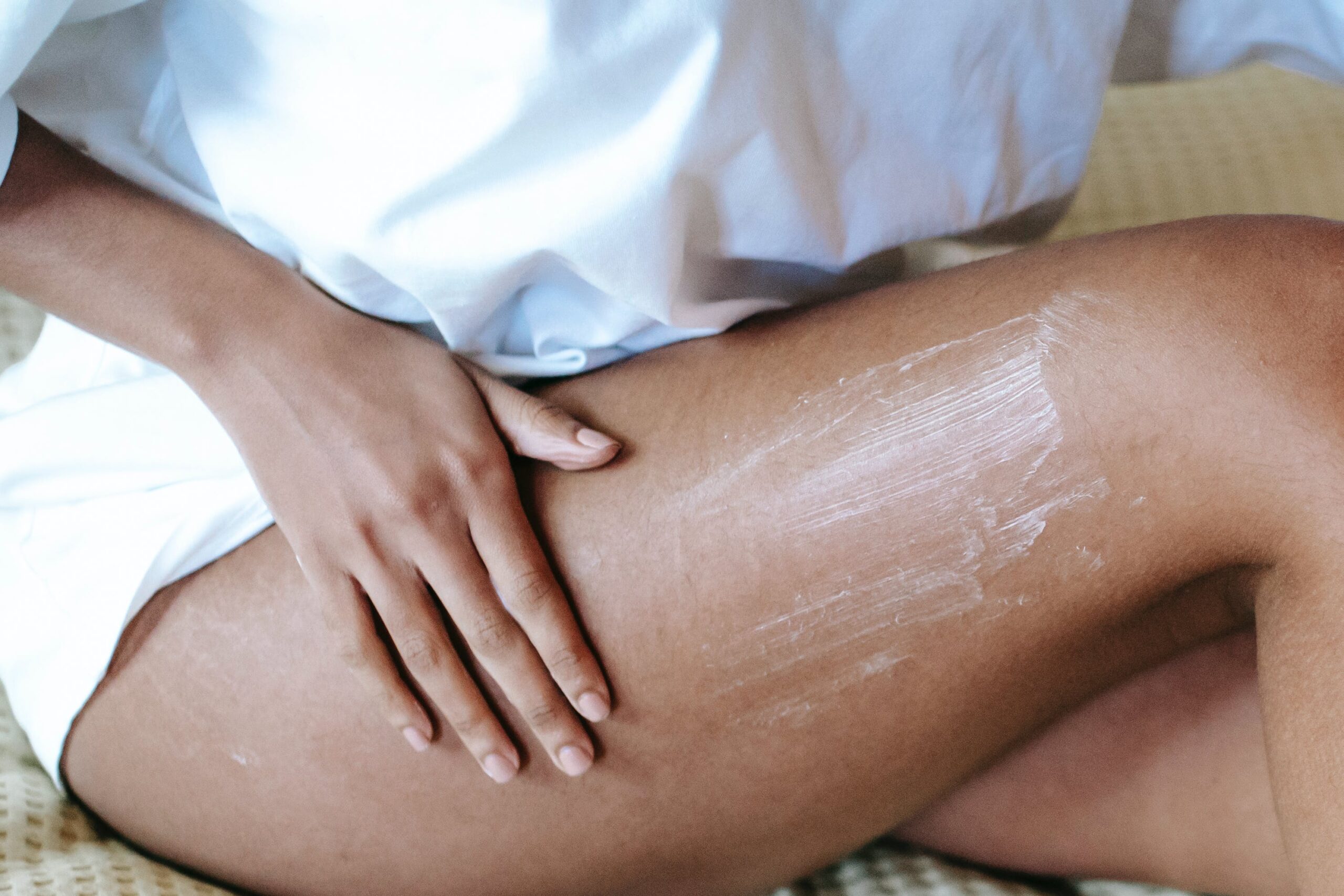Castor oil is a vegetable oil best known for its moisturizing and cleansing properties. When applied to the skin, users have reported feeling relief after experiencing dry skin, acne and eczema. While it’s not scientifically proven as an effective treatment for eczema, thousands of TikTokers have searched for and shared testimonials about castor oil’s impact on eczema.
Eczema, also called atopic dermatitis, typically starts during infancy but can affect folks of any age. Scientists believe it’s caused by an overactive immune system that replicates skin cells too quickly. With castor oil being a natural agent for slowing down that replication, it’s become a go-to for the dermal condition. Here’s what we’ve discovered when it comes to castor oil for eczema.
What Is Castor Oil?
In its thickness, castor oil is anti-inflammatory and prevents bacteria from affecting the skin. It also slows down skin growth helping to prevent irritation and fungus from developing. The fatty acids in castor oil serves as a treatment eventually smoothing the skin via hydration. The antioxidant oil has become a favorite amongst health content creators in search of home remedies. Each of these healing/alleviating properties are tested when it comes to eczema and users of the products can’t stop raving about it, but what is it specifically about eczema, that castor oil just gets?
What Is Eczema?
Eczema is an atopic dermatitis, an irritating condition happening on top of the skin. Health professionals report that it occurs when exposed to irritants which causes the immune system to overreact. The overreaction is a protection mechanism, but still causes the most intense itchiness and soreness sometimes leading to daily discomfort and lack of sleep. Flares of the dermatitis include cleansers, detergents, scented products, smoke, pollen, dust, rough clothing materials, extreme temperatures and food allergies. There are multiple kinds of eczema that manifest differently for every individual. However, atopic dermatitis and its triggers are the most common.
As we mentioned, the skin irritants cause inflammation and discomfort which can lead to excessive scratching and skin infections. There are no classified cures for eczema. Still, topical products like castor oil have done the trick for sufferers in terms of helping them achieve skin that both feels and looks better. It is recommended that folks with eczema keep their skin clean and moisturized. Here are some ways to establish or continue a routine for eczema prevention and/or maintenance.
How To Treat An Eczema Flare Using Castor Oil
Before getting started, you’ll need to make sure that your skin is clean. You can shower or wipe/dab the area with a clean wet cloth. While your skin is semi-moist, apply the castor oil to the area of your eczema flare. You could also apply a castor oil pack to the area which would require soaking a small cloth in water and/or castor oil, placing the cloth onto the area and leaving it there no longer than one hour. To hold the castor oil packed cloth in place, wrap it in a plastic cover. Despite a sometimes strong odor, you’ll want to stay away from following with any fragrances as that can be an irritant for the eczema as well.
And it isn’t just eczema that castor oil has the reputation of treating. There’s also sunburn, psoriasis, bug bites and allegedly wrinkles. While there are many treatment options for almost every skin condition from dermatitis to laugh lines, castor oil falls within the natural realm of diy tactics. Eczema does, however, have the potential to be very severe garnering steroidal topicals, medines and sometimes even injections. It’s important that if you’re seeking treatment, you check in with your doctor as close to the start of the new regimen as possible. Some may find that after spot testing, they’re actually allergic to castor oil. Doctors recommend trying other lighter oils like almond or lavender. We wish you a smooth skin healing journey and a speedy recovery for any flare-ups.
